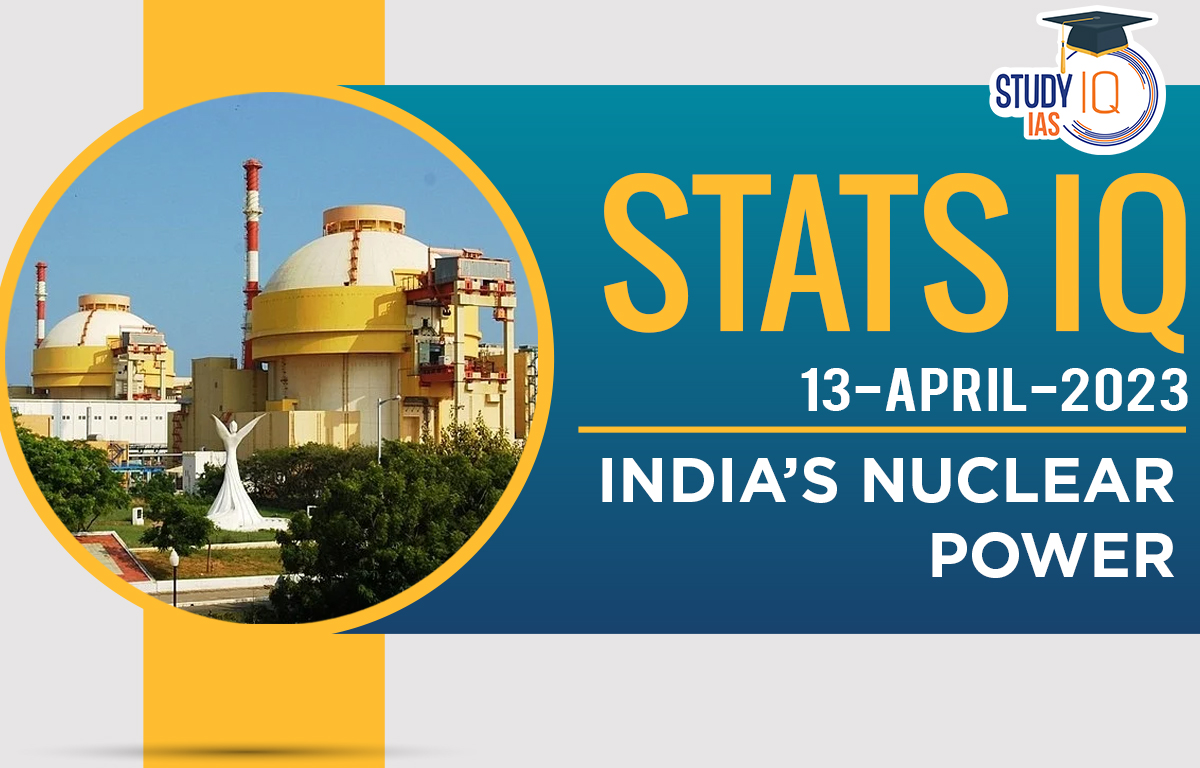Table of Contents
India’s Nuclear Power
- India’s Nuclear Energy: Nuclear power is an efficient way of boiling water to create steam, this steam is used to turn turbines, which creates electricity. Nuclear energy is the 5th largest source of electricity for India.
- Nuclear Power in India: India has a largely indigenous nuclear power programme.
- India also stands at 7th position in terms of the number of nuclear reactors.
- There are 22 Nuclear Power Reactors operational in India. Among these 18 reactors are Pressurized Heavy Water Reactors (PHWRs) and 4 are Light Water Reactors (LWRs).
- India has the Asia’s first nuclear reactor is the Apsara Research Reactor situated in Mumbai.
- Recently, the Central Government has approved setting up of 10 indigenous Pressurized Heavy Water Reactors of 700 MW in Karnataka, Haryana, Madhya Pradesh, and Rajasthan.
- This will increase India’s installed nuclear power capacity from 6780 MW to 22480 MW.
- World’s first thorium based nuclear plant “Bhavni” using Uranium-233 is being set up at Kalpakkam in Tamil Nadu. It is going to be entirely indigenous and the first-of-its-kind.
- Kudankulam Nuclear Power Plant in Tamil Nadu is the largest nuclear power plant in India.

India’s Energy Profile
- Non-renewable energy:
- India’s coal generation and oil imports are going to peak in 2030, while gas imports will double around the same time.
- At present, India accounts for just over 10% of global coal consumption, after China which accounts for 55 %.
- India became the world’s second‐largest coal producer in 2021 (in energy terms), overtaking Australia and Indonesia.
- Renewable energy targets:
- India is working towards achieving 500 GW of installed electricity capacity from non-fossil sources by 2030.
- India stands 4th globally in Renewable Energy Installed Capacity (including Large Hydro), 4th in Wind Power capacity & 4th in Solar Power capacity.
- So far, a total of 172.72 GW of capacity from non-fossil fuel sources has been installed in India. This includes:
- 119.09 GW Renewable Energy
- 46.85 GW Large Hydro
- 6.78 GW Nuclear Power capacity
- Future of Energy Demand in India:
- India will become the world’s most populous country by 2025.
- Combined with the twin forces of urbanisation and industrialization, this underpins rapid growth in energy demand, which rises by more than 3% per year. It shall be the largest increase in energy demand of any country.


 Protection of the Aravalli Range: Import...
Protection of the Aravalli Range: Import...
 Viksit Bharat Shiksha Adhishthan Bill 20...
Viksit Bharat Shiksha Adhishthan Bill 20...
 India’s Biosecurity Framework for Emer...
India’s Biosecurity Framework for Emer...

























